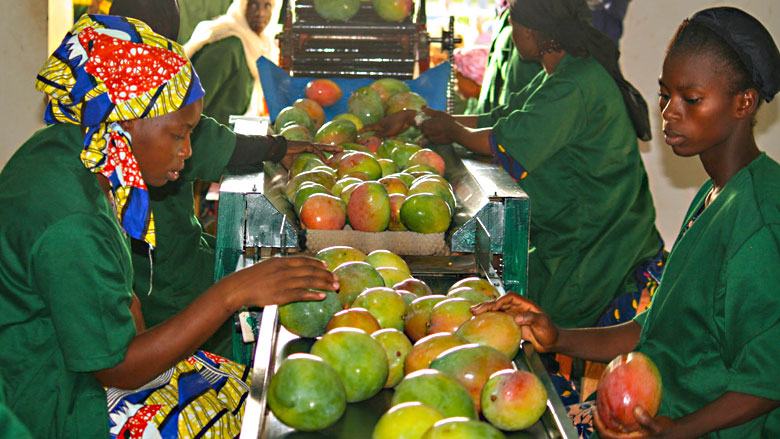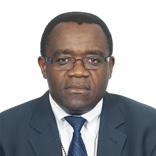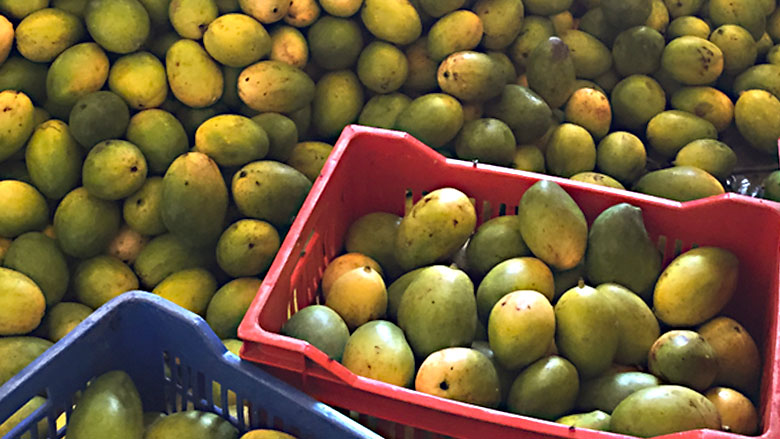WASHINGTON, November 28, 2016— Mali, specifically the country’s southern region, is among the largest mango producers in West Africa and among the fastest growing mango exporters in the world. In 2015, Mali produced 600,000 tons of mangoes, contributing to $30 million in exports.
But, of all the mangoes grown and produced in 2015, the country’s mango industry exported only 6 percent.
CEDIAM is the largest fruit and vegetable processing company in Mali. In 2015, the company bought 11,000 tons of mangoes from local farmers and produced 5,000 tons of puree and concentrate.
With the right access to quality raw materials, however, CEDIAM could have produced 25,000 tons.
“Mali’s fruit processers are operating far below their potential because of limited access to quality produce, poor road infrastructure, insufficient storage facilities, and overall gaps along the mango value chain,” said Paul Noumba Um, World Bank Country Director for Mali.
In 2015 for example, CEDIAM used only 20 percent of its capacity to process mangoes.
“With more training and the right linkages along the value chain,” said Um, “farmers could grow more and better quality fruit and CEDIAM and other processors could produce thousands more tons of mangoes, helping firms and the country better compete at the international level.”
Better support to farmers
On November 22nd, the World Bank Group approved a US$30 million credit to support the Government of Mali’s Support to Agro-Industrial Competitiveness Project.
The project aims to increase the processing of agricultural products in Mali’s Sikasso-Bamako-Koulikoro region. The Sikasso region represents approximately 90 percent of mango growers and producers in Mali, and yields the country’s highest number of mangos. The region also boasts Mali’s highest poverty rate and most of its residents are subsistence farmers.
The new project will connect up to 5,000 small farmers to agro-processors, traders and exporters, allowing them to increase sales of their harvests. The project will also provide support to farmers in drawing up contracts with the various actors along the mango value chain, ultimately increasing earnings and creating more job opportunities.
Moctar Fofana is president of Mali’s Mango Value Chain Inter-professional Organization (IFM), an association of businesses working in Mali’s mango industry.
“We welcome the continuing support of the World Bank Group with regard to the mango value chain, particularly in promoting processing and exports,” Fofana said. “While there is a potential for expanding revenues for all actors in the mango value chain (nurseries, farmers, rural assemblers, processors, and exporters), this can only be done through good coordination amongst ourselves in the value chain and a constructive dialogue with Government.”
The project will also finance the improvement of 300 km of rural roads. Currently, poor road conditions cause longer travel times, damaged delivery trucks and bruising of fruit, which limits sales.



